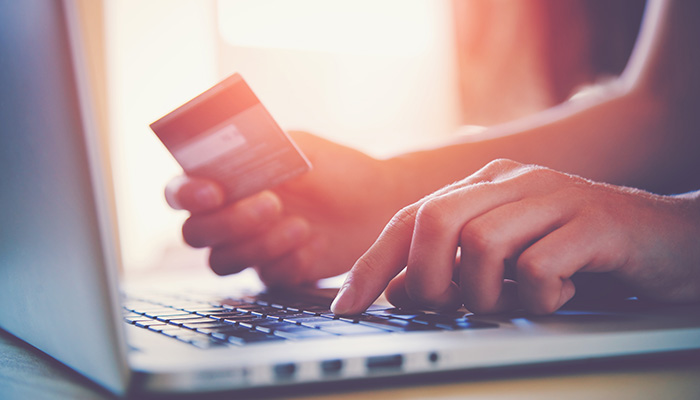2025-06-02
Five Tips For Controlling Your Credit Card Use
Credit Counselling
With consumer debt at an all-time high, Canadians are being warned to take steps to reduce their debt before interest rates begin to rise.
It almost seems impossible to live without a credit card these days. There are just too many situations where one is required to justify not having one. If you want to book a hotel room, the concierge needs a security deposit, usually in the form of a credit card pre-authorization. If you want to make a purchase online, few retailers accept cash or Interac. If you want to feel comfortable on a road trip, a credit card is nice to have in the event your car breaks down. The list of reasons why we might want to keep a credit card on hand is endless and so are the justifications we make for keeping one (or five) on us at all times.
But with a range of effective credit card alternatives now widely available, those reasons are less convincing than ever. By taking advantage one or all of them, it is possible to almost, if not entirely, eliminate the need for a credit card altogether. Even if that isn’t the route you’re interested in taking, learning how to go about our daily lives without a credit card can be a beneficial exercise in establishing healthier spending habits.

Visa Debit Cards
Most financial institutions now partner with credit card providers to offer the convenience and functionality of a traditional Visa or MasterCard directly through your chequing account. These credit / debit hybrid cards can be used to make pre-authorized purchases or held for collateral when booking a hotel room, renting a car or purchasing airline tickets. They can also be used in place of a credit card when making purchases on many e-commerce websites. Rather than borrowing money from a credit lender at a high interest rate, the payment process functions the very same as your Interac debit card. As long as you don’t use it to go into overdraft, you never have to worry about accumulating debt when you use these cards.
Functionally, prepaid credit cards operate less like a conventional credit card and more like a reusable gift card you can use anywhere. Rather than building up a credit balance you will have to eventually repay, you pre-load your card with as high or as low of a balance as you would like prior to using it. These cards are generally accepted anywhere a traditional Visa or Mastercard are and they can be conveniently re-loaded online or at the bank or by purchasing credits at selected retailers. They also come with the balance insurance and fraud protection of a traditional credit card, so you can still have some of the benefits without the significant debt risk.
A credit card is a convenient tool for making online purchases. However, many websites offer alternative payment services which can connect directly to your bank account. The most recognizable of these is PayPal, though other services such as Amazon Payments, Google Wallet and Apple Pay are becoming increasingly common. These tools offer similar if not better security than a credit card, including fraud and identity theft protection. They can also help to streamline the purchase process by remembering your billing and shipping information and help you avoid taking on debt in order to shop on your favourite e-commerce websites.
While there are certainly instances where a credit card or a credit card alternative are absolutely required to make a purchase, most transactions can still be made using cash. And that is a good thing. The beauty in cash is that it’s black and white; you either have it or you don’t. If you have the cash to make the purchase, you can buy the item immediately, enjoy it completely and won’t face the nagging guilt of monthly payments, nor the anxiety of watching the purchase price inflate — often significantly — over what you originally paid.
If you don’t have the cash to make a purchase, you know you can’t afford it right now. You’re forced to revisit your budget and make tough decisions about where spending needs to be cut to accommodate saving for the item. It makes you consider the opportunity cost of the purchase and decide what, if anything, you’re willing to give up to get what you want. On the one hand, finally buying the item is more rewarding because of the discipline and sacrifice required to get it. On the other hand, you may just decide it was a spur of the moment impulse and you didn’t really want it all that badly to begin with.
Of course, another residual benefit of this practice is that every time you revisit your budget, your monthly spending gets more refined, you become more resourceful with your money and you will ultimately free up room for more efficient saving — offering significantly more buying power over the long term and putting you on the road to achieving financial freedom.
If you’re struggling to escape the never-ending cycle of credit card debt, an MNP Licensed Insolvency Trustee may be able to provide you with the Life-Changing Debt Solution you need. Call us for a free confidential consultation to learn which one might be best for you.
2025-06-02
Credit Counselling
With consumer debt at an all-time high, Canadians are being warned to take steps to reduce their debt before interest rates begin to rise.
2023-08-31
Credit Counselling
Making monthly minimum payments is one of the many ways you might misuse your credit card. It can result in a debt cycle that is difficult to break.
2023-05-15
Credit Counselling
Dealing with debt can be a frustrating experience and it’s much worse when you start to receive calls from creditors. With the right support and tactics, you can overcome this challenge.